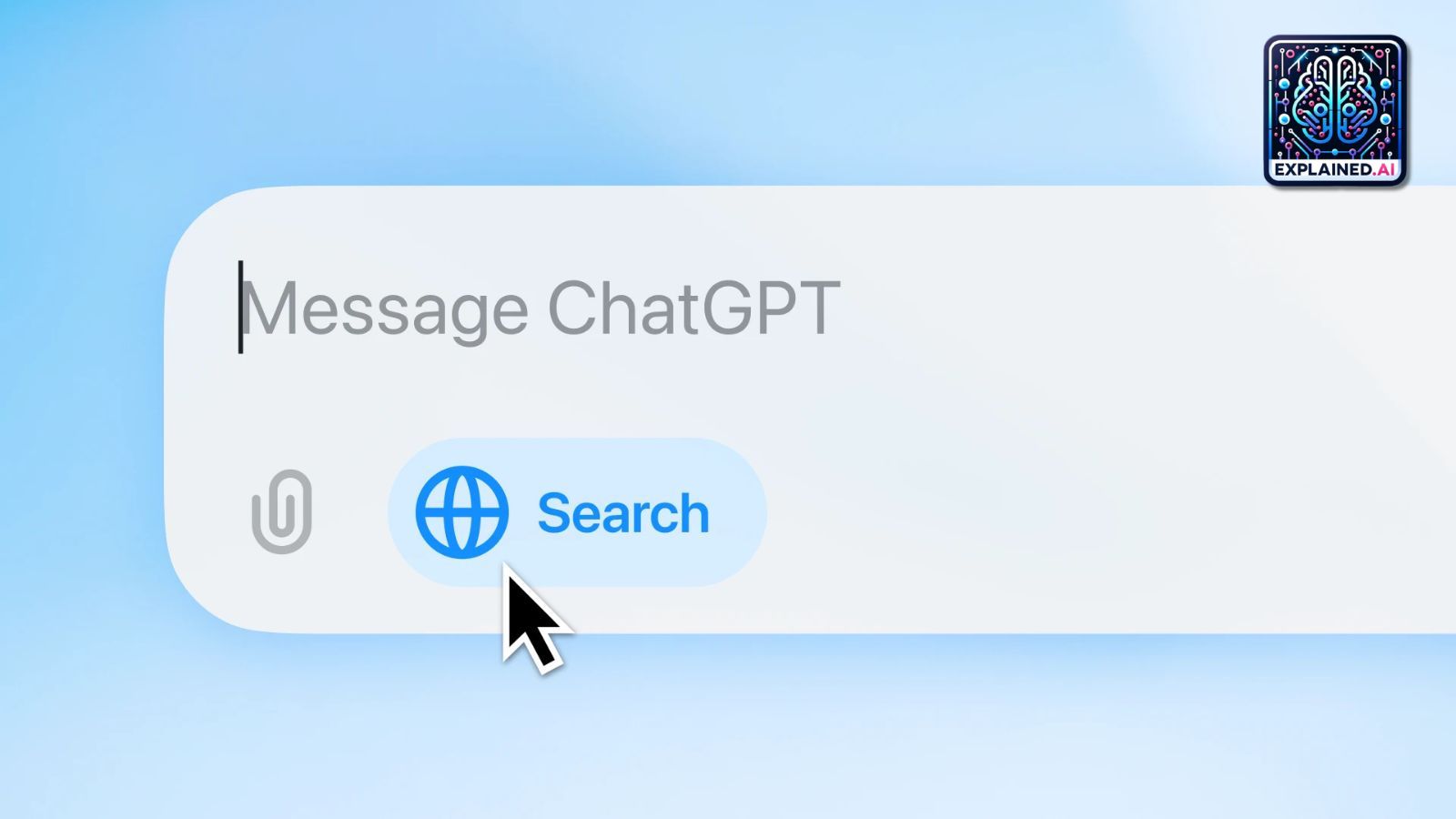The latest version of AI chatbot ChatGPT has the capability to search the web, OpenAI announced last week. This means that the chatbot can now retrieve and deliver information from across the internet in real time, including top headlines, stock prices, and sports scores. Currently, the feature is only limited to paid subscribers.
It has arrived at a time when tech bigwigs such as Meta announced that it was working on its proprietary AI search engine to be integrated with its social media apps, and when AI-powered search by companies like Google, Perplexity, Microsoft Copilot, etc., are thriving.
Before the advent of Large Language Models (LLMs) such as OpenAI’s GPT family, search engines were powered by keyword-based algorithms. For instance, when a user searched for “best shoe store”, the search engine would go through a vast library of web pages that had been identified or categorised based on these keywords, and then show the most relevant pages.
Although this is efficient in most scenarios, it is restricted to the literal search and often misses the nuances and complexities of human language. For instance, a Google search of ‘Llama’ will show you both Meta’s LLM and the animal Llama. This is also based on which of the descriptions appears frequently on its indexed pages. Here, the traditional search engine is simply matching words and is not really aware of what the user may be seeking.
Since traditional search engines are inept at understanding the relations between concepts or how users ask questions, they often fail to offer the best answer when prompted with more complex and conversational queries.
LLMs changed this and introduced the era of a more sophisticated, contextual search based on the user’s intent.
What sets AI search apart?
AI-powered search is much beyond matching keywords as it uses natural language processing (NLP), machine learning, and semantic understanding (the ability to comprehend the meaning and context of words). With machine learning, search engines can now analyse user behaviour, learn from their search habits, and refine their outputs over time.
Story continues below this ad
NLP allows the engine to understand language closer to human comprehension, essentially allowing it to grasp context and also the intent of words. For example, if one searches for “Llama,” the AI-powered search engine will analyse their older searches and other patterns to see if they are interested in the animal or Meta’s LLM. In case one recently searched for “animals from camelids family”, the AI would recognise that the new search is about the animal and show relevant results.
In case a user asks a more complex query such as “What are the health benefits of pistachio”, the search would showcase a wide range of sources like research papers, medical journals, studies on nutrition, and health blogs to give a detailed answer. The ability to come up with contextual and cross-domain analysis of various topics is one of the major advantages of AI-powered search over traditional search.
AI-powered search also continuously evolves based on its interactions. The AI upgrades and learns each time a user clicks on a certain result, offers feedback, spends time on a page, etc. This continuous learning enables AI to come up with highly personalised search experiences for users.
So will AI replace search engines?
Story continues below this ad
Not really. Google, Bing, DuckDuckGo, and even Chinese search Baidu have all introduced generative AI models and are integrating them into their search products. AI will most likely enhance the capabilities of search engines.
Most search engines, as of today, use AI to understand complex queries. They consider aspects such as location, and previous searches, to offer personalised results. ChatGPT and Gemini employ conversational interfaces that allow users to engage with search engines in a natural conversation. Some of these search engines also support multimodal interactions, meaning users can do image and voice searches.
Why are tech giants rushing to build AI-powered search engines?
Tech companies want to increase their user base and revenue streams by building proprietary AI search engines.
Story continues below this ad
AI-powered search tools allow companies to retain their user base in their ecosystem. For instance, if Meta integrates its search engine into Facebook and Instagram, it could increase user engagement by keeping them in the ecosystem. These users would no longer need to go on a conventional search engine to look up information while interacting on any Meta platform.
With increased engagement there are more possibilities for revenue generation. Google, Meta, and OpenAI can use their AI-powered search to push relevant ads, bringing new possibilities for ad revenues.
Proprietary AI search engines would also let tech companies collect user data directly, offering them a reservoir of user interaction insights. This can help them further personalise user experience, support AI training, and improve the relevance of future responses.
Even though there are advantages for companies, AI-powered search engines are not without challenges. Ethical considerations are crucial as companies would be required to do more to manage AI biases, and misinformation to build trust among users.








































